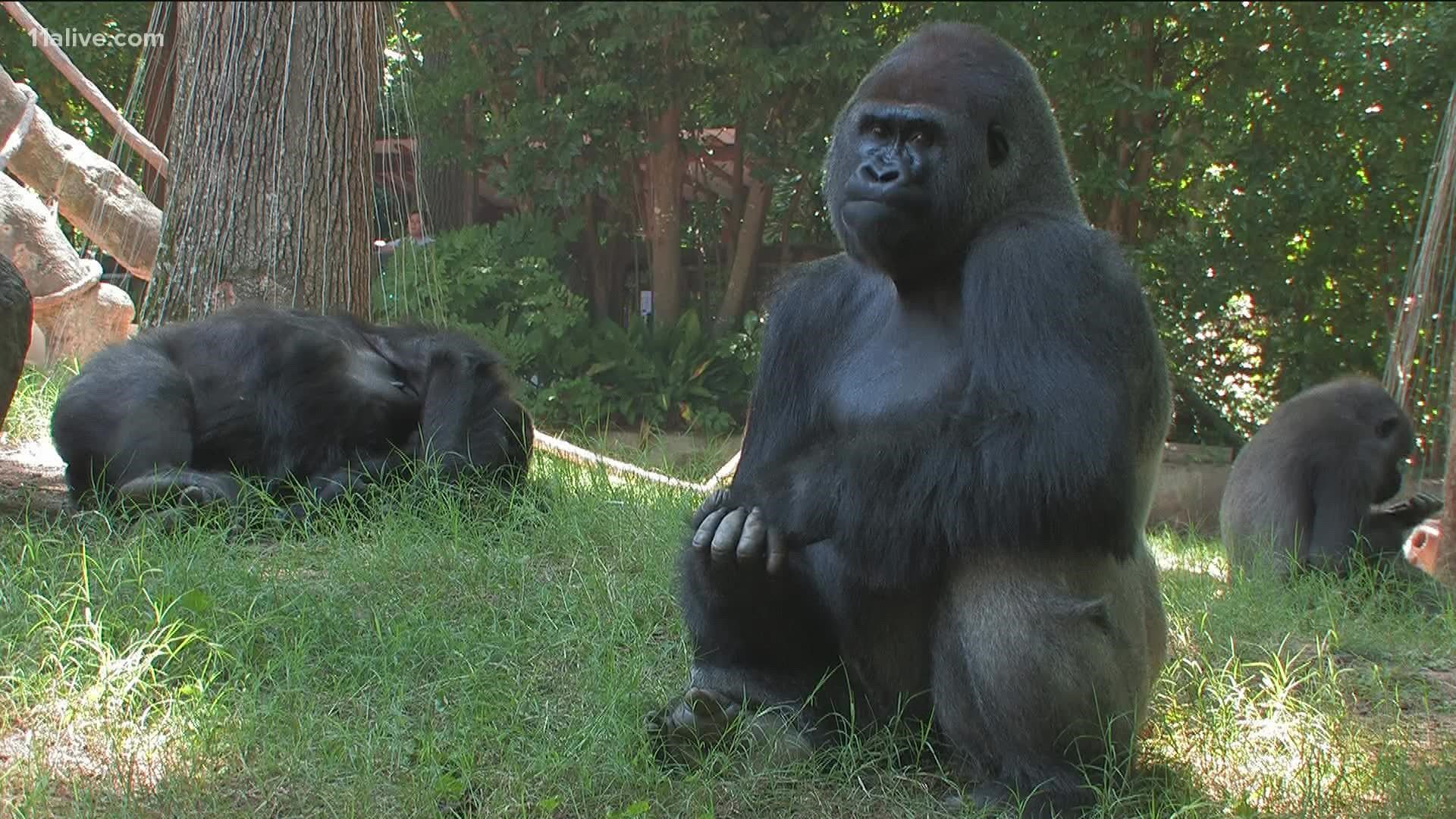ATLANTA — Zoo Atlanta announced Friday that some of its gorillas have tested positive for the virus that causes COVID-19.
Staff members said they observed coughing, nasal discharge, and minor changes in appetite in "several members of the gorilla population."
They believe it is possible that the gorillas got the virus from a COVID-positive care team member. The team member is fully vaccinated, they said, was wearing PPE and was asymptomatic on the day of reporting to work.
"While humans are known to be able to transmit the virus to animals such as gorillas, and these cases have occurred at other zoos, there is currently no data to suggest that zoo animals can transmit the virus to humans," Zoo officials said in a statement. "Regardless, Zoo Atlanta visitors do not pose a transmission threat to the gorillas or vice versa given the distance between the areas used by guests and the animals’ habitats."
Fecal samples and nasal and oral swab samples from the animals were sent to the Athens Veterinary Diagnostic Laboratory at the University of Georgia, where they tested presumptively positive, they said.
They said they are waiting to receive the results of the confirmatory tests on samples sent to the National Veterinary Services Laboratory in Ames, Iowa.
Zoo Atlanta officials said, like other cases at major zoos across the country, the gorillas are being treated with monoclonal antibodies.
Zoo Atlanta had been authorized to use, and was on a waiting list to receive the Zoetis vaccine, they said, "a vaccine made specifically for animals which has been used for SARS-COV-2 susceptible species in other zoological organizations in North America."
The zoo said they plan to vaccinate its Bornean and Sumatran orangutans, Sumatran tigers, African lions, and clouded leopard. As the gorillas recover, they will also receive the vaccine. Zoo Atlanta’s use of the Zoetis vaccine has been authorized by the U.S. Department of Agriculture (USDA) and Georgia’s State Veterinarian.
"The teams are very closely monitoring the affected gorillas and are hopeful they will make a complete recovery. They are receiving the best possible care, and we are prepared to provide additional supportive care should it become necessary,” said Sam Rivera, DVM, Senior Director of Animal Health. “We are very concerned that these infections occurred, especially given that our safety protocols when working with great apes and other susceptible animal species are, and throughout the pandemic have been, extremely rigorous.”
Last year, the otters at Georgia Aquarium tested positive for the virus.

